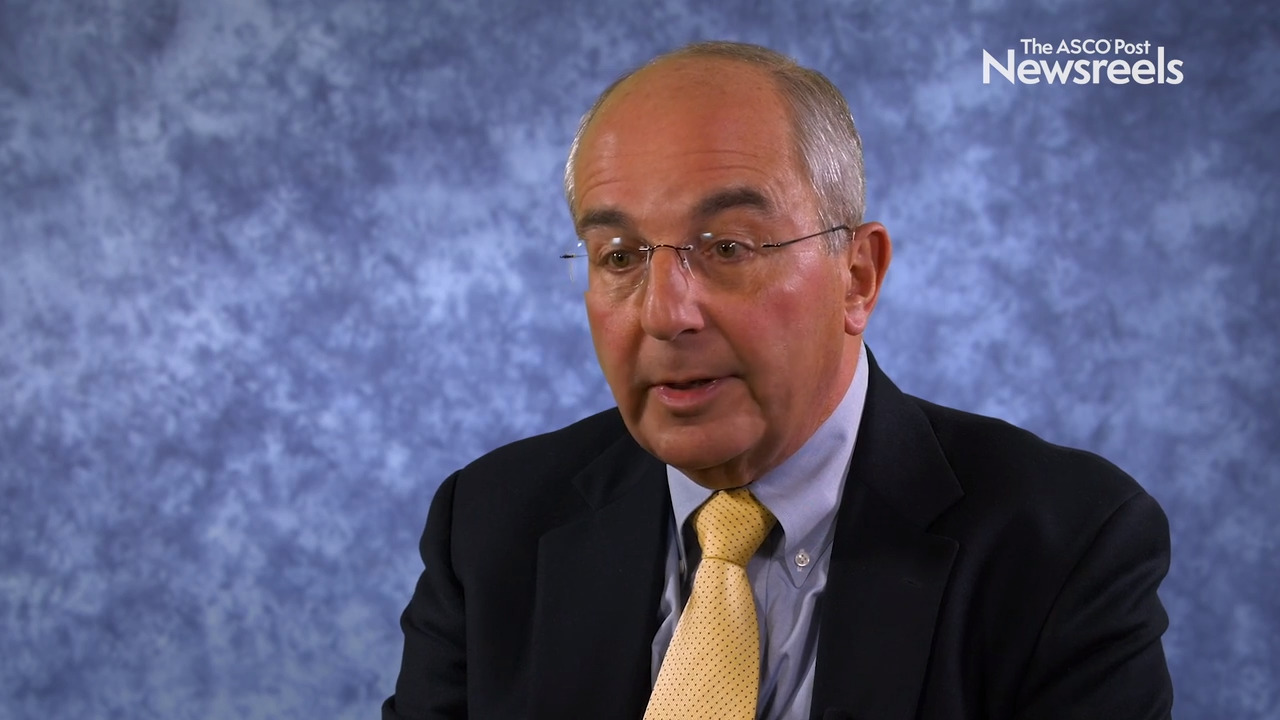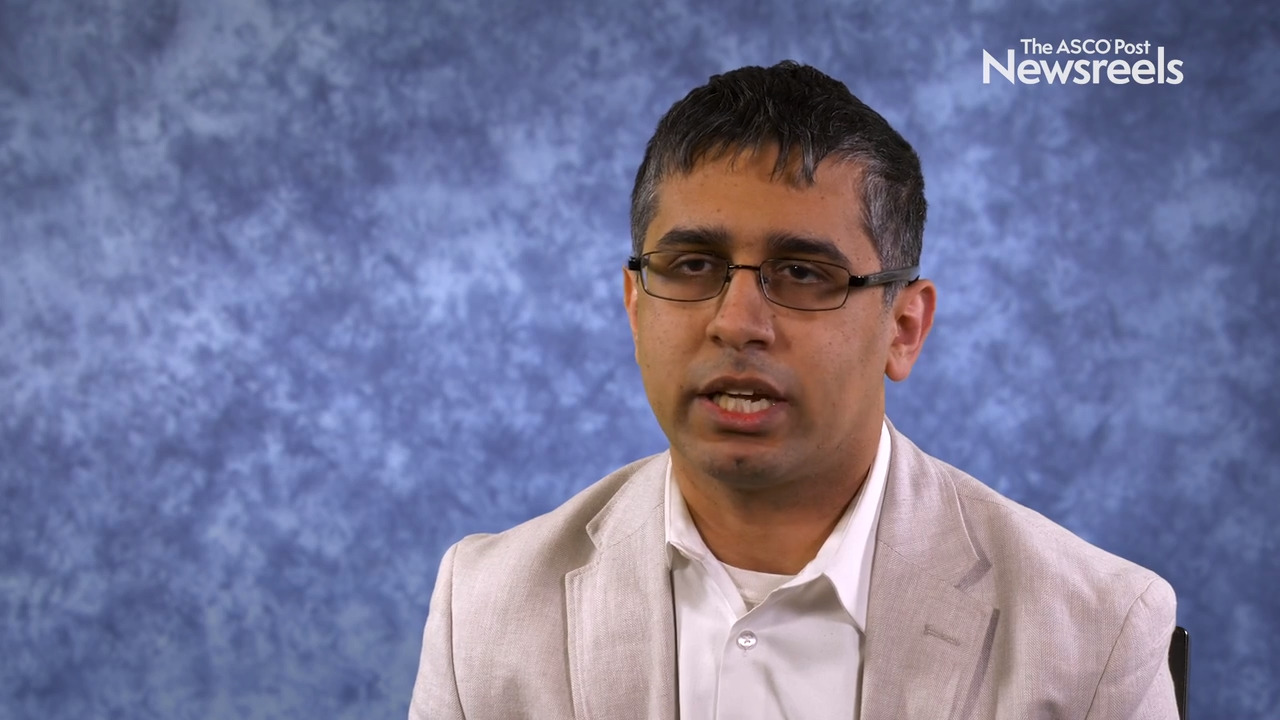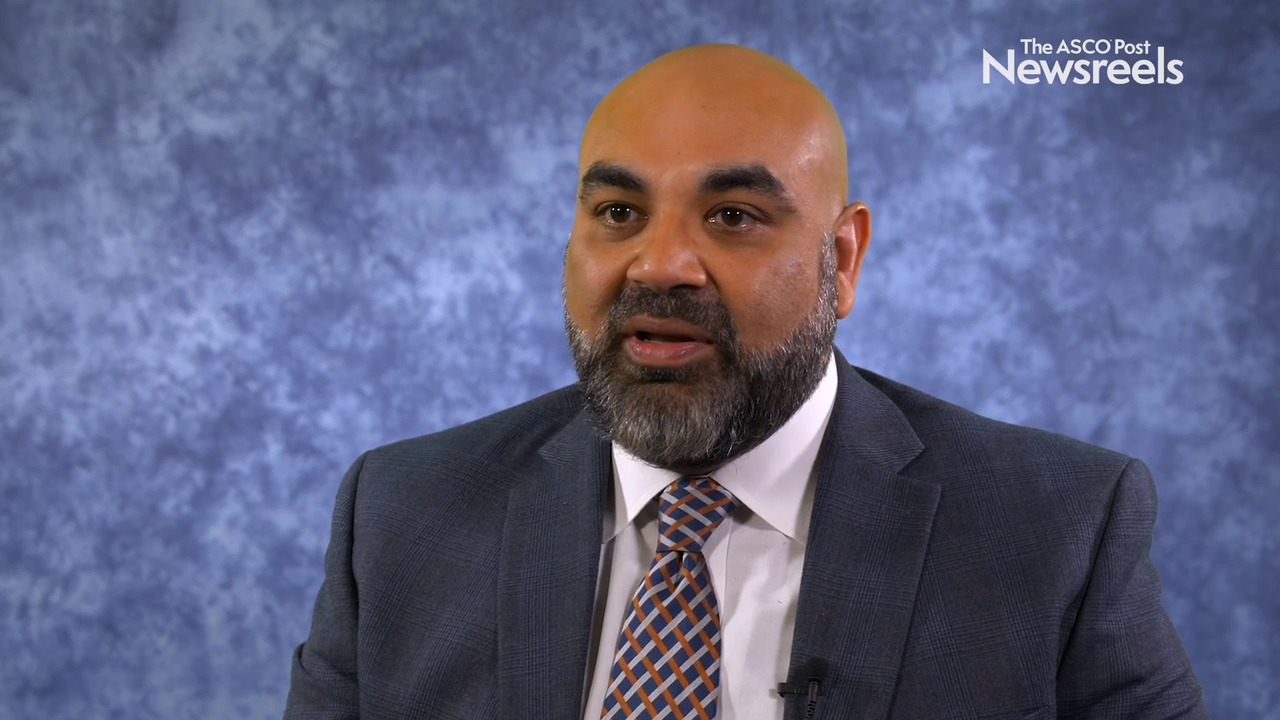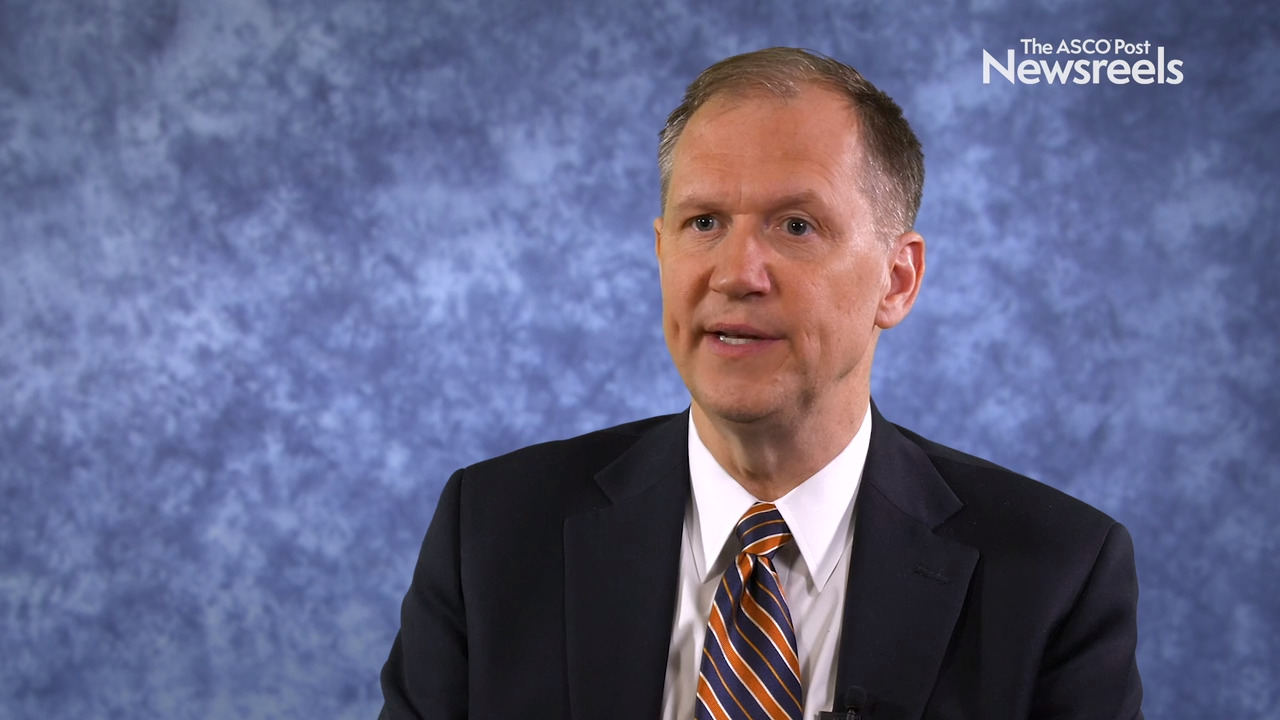Carryn M. Anderson, MD, on Reducing Severe Oral Mucositis and Its Effect on Patient Outcomes
2020 Multidisciplinary Head and Neck Cancers Symposium
Carryn M. Anderson, MD, of the University of Iowa Hospital, discusses the investigational agent GC4419, previously shown to be safe and effective in decreasing the duration, incidence, and severity of oral mucositis in patients receiving concurrent cisplatin and radiation for oral cavity and oropharyngeal squamous cancers. The 2-year tumor outcome data suggest that GC4419 does not seem to compromise tumor control (Abstract LBA2).
The ASCO Post Staff
David Adelstein, MD, of the Cleveland Clinic, discusses the hypothesis that treatment can be de-intensified in patients with HPV-associated oropharyngeal cancer and a good prognosis.
The ASCO Post Staff
Nadeem Riaz, MD, of Memorial Sloan Kettering Cancer Center, discusses the biomarkers that have emerged for immunotherapy and their tumor microenvironments, from PD-L1 staining and the Combined Positive Score to next-generation genomic technologies.
The ASCO Post Staff
Gopal K. Bajaj, MD, MBA, of the Inova Schar Cancer Institute, discusses the results of a small study that showed prophylactic gabapentin can be safely and effectively used to significantly reduce pain and the use of opioids in patients undergoing radiotherapy or chemoradiotherapy for head and neck squamous cell carcinoma.
The ASCO Post Staff
Jill Gilbert, MD, of Vanderbilt University Medical Center, discusses this ongoing area of investigation and which patients can safely undergo a de-intensification of treatment. Based on two randomized trials, cetuximab should not be substituted for cisplatin as a de-intensification strategy in HPV-positive oropharyngeal cancer.
The ASCO Post Staff
Francis P. Worden, MD, of the University of Michigan Health System Comprehensive Cancer Center, explores the use of novel biomarkers that may help predict response to induction chemotherapy and survival in patients with locally advanced laryngeal cancer.





